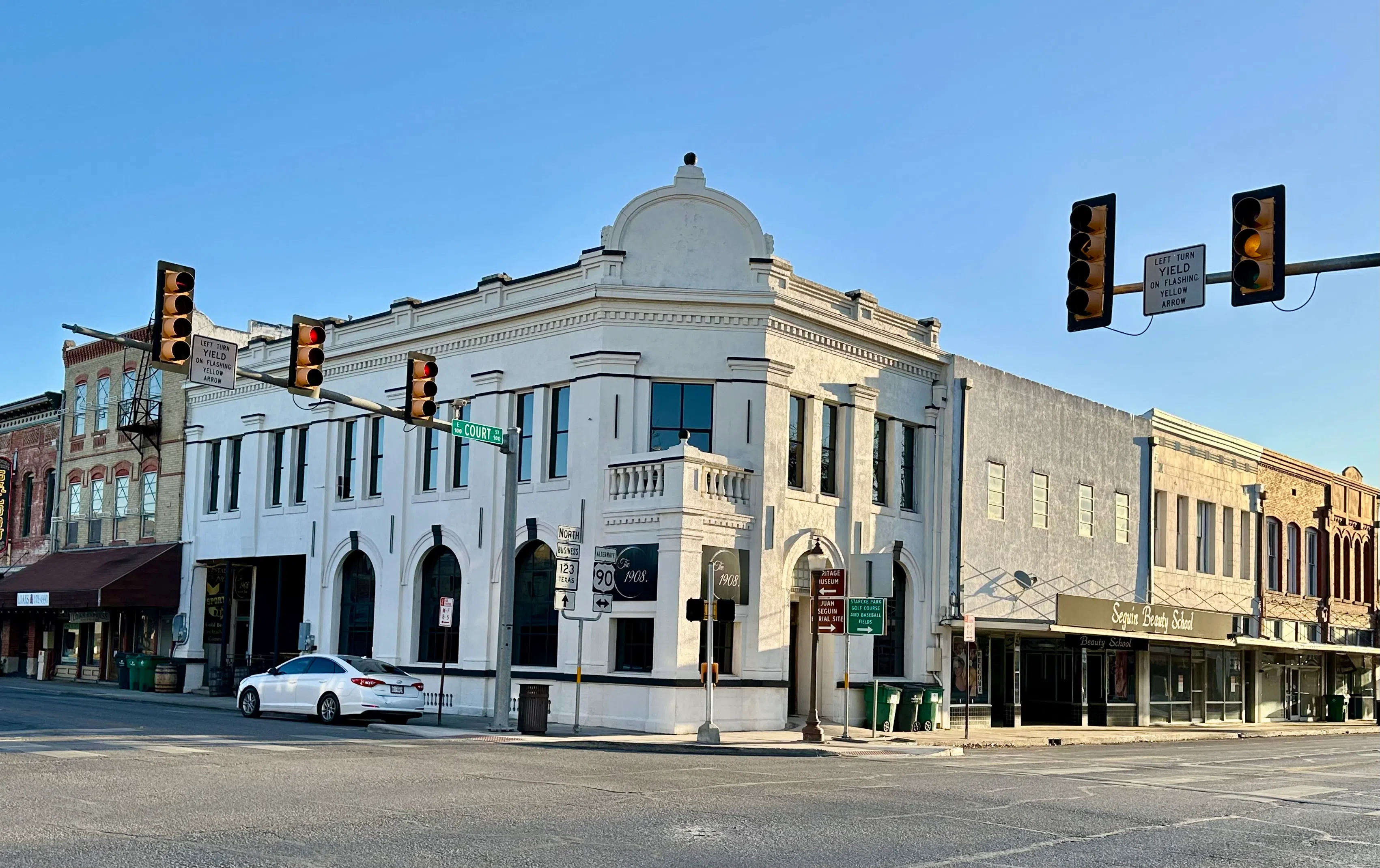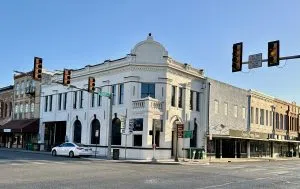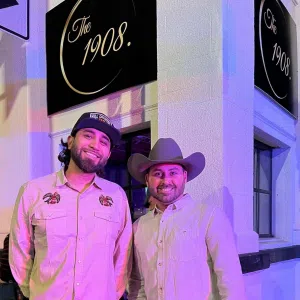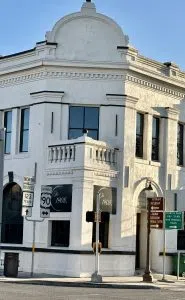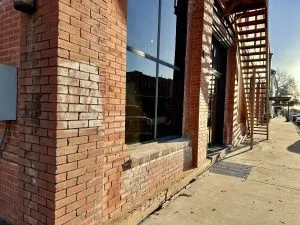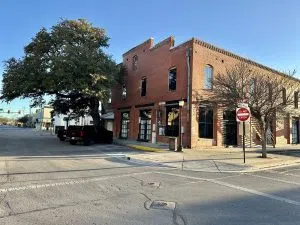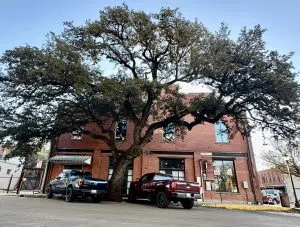(Seguin) — The city of Seguin is moving forward with a plan that will help bring some new opportunities to the downtown area. The Seguin City Council recently approved a motion asking city staff to move forward with a proposal that would support the creation of a new dining option and a new second floor venue in the downtown historic district.
There’s a good chance that most people have never heard of Chapter 380 Agreements. It’s one of the tools available to the city when it’s offering economic development incentives in the downtown area. Chapter 380 is a reference to a section of the Texas Government Code, which spells out the city’s ability to offer these programs. Chapter 380 is a flexible tool that can be used in a number of ways. In this context, the city wants to use it to offer $35,000 to help install a kitchen at “The 1908” bar, located at the corner of Court and Austin streets. The bar offers three different levels inside its building, including a patio level bar on the ground floor and a sports bar on the top floor. The bar owners say they now also want to offer a full-service restaurant in that space, and the money from the city would help them get that started.
The city is also offering $50,000 to help install an elevator in a building located at 113 South Camp St. The elevator would allow the developer to open “The Canopy,” which would be a multi-use venue that would open on the second floor of that building. City officials say both the restaurant and the venue would offer something that’s either available on a limited basis or offer services that aren’t currently available at all in downtown Seguin.
Jake Kozlowski and Pete Aguirre own and operate The 1908. Kozlowski says the bar has gone well, and they now want to bring another food option to the downtown area.
“We plan on starting five days (a week) and then adding in the sixth and seventh days on Mondays and Tuesdays, but we want to be seven full days a week,” said Kozlowski.
Kozlowski says the kitchen would not only allow them to open a restaurant seven days a week, but it would also be a place that offers a wide variety of quality items for the entire family to enjoy.
It’s not just going to be a basic wings (and) burgers (menu). We want to escalate it to salmon and we do want to get steaks in there. We want some nice appetizers, especially on certain days of the week and certain times when you’re going to have some windows (of opportunity), because there are three different floors. The sports bar is going to be one thing, and sports bar right now is only open Thursdays through Sundays pretty much. That main floor is open seven days a week. So, you want people to be able to come in…have a glass of wine with some calamari or some egg rolls. You want something like that. Or do you want chicken salad? We want to have a really good menu,” said Kozlowski.
The Canopy is being developed on the second floor of the building that previously housed the Soel Venue at the corner of Camp and Donegan streets. Spencer Jergins is the projects developer. He says he’s moving the new venue upstairs. He says it will not only create better overall space for all kinds of events, but he says it will also open up some much needed retail space on the first floor.
“I thought the upstairs space was actually more fitting for an event space due to the dimensions of it and the way it’s laid out. It would be better suited for an event space. I thought the lower floor would actually be better suited for retail. So, by moving this event space up to the second floor, we’re creating four new retail locations on the ground floor on Camp Street. I think that ties in really nicely with the restoration project that’s happening on Camp Street to light up that street and make it really beautiful, and just have four brand new retail locations there,” said Jergins.
Jergins says The Canopy will be a special event space that will bring scores of people to downtown Seguin.
“I’ve invested a lot of time, energy and finances into bringing this this project to Seguin. I’ve hired a really good design team and built a really beautiful website that I’m happy to share with you guys. What I see for this space is a really, really amazing downtown event space for the city of Seguin, that will bring hundreds of people, hopefully every single weekend to the city,” said Jergins.
The $50,000 incentive from the city would pay for the elevator that would be required for The Canopy to become a reality. Jergins says without that support; it would be difficult for him to proceed with the plans for overall project.
“It is not financially viable — with how much it’s costing to develop the forr retail spaces below and how much I’m putting into the top spaces — to do this without the assistance and help in getting this elevator funding,” said Jergins.
Jergins says that The Canopy will be a much-needed multi-use event space, that will be available for all kinds of gatherings. He says they will have a stage, a full bar, and other amenities that all look out into the canopy of the large tree outside the building. He says this is a space that will be available to everyone.
“So, we’re going to make this a multi-faceted event space. It doesn’t just have to be wedding venues. It could be city events. It could be mediation. It could be quinceneras. It could be whatever it needs to be, just a really good downtown event space. It is going to have a beautiful bar. We’re trying to operate an affordable price point, that I feel like is not being met in the market right now with venues. So, this won’t be a break the bank venue. It’ll be, I think, very competitive in the marketplace,” said Jergins.
The council was supportive of the new projects for downtown Seguin, but there were some questions raised about the process that staff used to offer the 380 agreements to both businesses. Councilman Paul Gaytan, represents a large portion of the downtown area, said that he had spoken to some existing downtown business owners, who wanted to know why they weren’t being offered these kinds of incentives.
“This program is not known. There are downtown business owners that want to apply. They view this as unfair competition. They view this as something that they just know about. I felt the pulse of my constituents. I don’t want to see it presented this way again,” said Gaytan.
Staff pointed out that similar agreements have been offered to Burnt Bean Co. for the purchase of its large barbecue pits and to Second Story Dance & Co. for the elevator that brings people up to its second-floor location on Donegan Street. Main Street Director Kyle Kramm says the 380 agreement is just one of the tools that they have for support of developments in downtown Seguin. He says it isn’t hidden and is part of the sheet that they hand out when they meet with businesses to discuss potential developments, or when existing businesses come in to discuss planned upgrades.
“The 380’s were meant to be flexible. So, there is no like set policy. In our application for 380 agreements, we talked about that for downtown (projects) to be considered for a 380 incentive, it’s going to need to be a unique project that fills a void,” said Kramm.
Filling a void is a key component for these 380 agreements. City Manager Steve Parker says they use these agreements to bring unique opportunities to the downtown area in an attempt to bring in more of the things that people say that they would like to see in downtown Seguin.
“When staff hears that somebody’s going to expand or do a major project, they usually come to us very early on and say, ‘what do I have to do to meet historic preservation guidelines or ADA?’ They also meet with the building official. So, we start to hear about some of these projects and if it’s something we feel is probably a game changer in a lot of ways. We step up and make sure that this is a project that’s going to come to fruition, that it’s going to happen. Then you hear there’s a funding gap and they can’t quite do it without some additional assistance. Then we kind of look at that cost benefit analysis and say, hey, does this move the needle in downtown or does it not? (If it does move the needle), then we’ll make the recommendation to the council and then the council gets to decide. If we agree that it’s a game changer, then (the council decides) if we want to support that incentive or we want to reduce that incentive, or we don’t want to do incentive at all. So, then technically up to you all,” said Parker.
Parker says staff handles the vetting of the proposed projects, but ultimately, it’s up to the city council to decide if their projects are worthy of the incentives being offered. Much like other economic development projects, most of those negotiations take place outside the view of the public. Parker says the due diligence is being done on every single project that’s brought to the city.
“Some of that is actually (done) on purpose, because we want to keep some confidentiality. So, staff reviews a lot of that. (During council meetings), we can always go into executive session and we can review revenue numbers. We also review (the overall project). You know, if he tells us, ‘My elevator is going to be $180,000,’ we’re going to say no, it’s not. We know these numbers from other businesses that have put elevators in, or we ask for more information. We ask for quotes and those types of things. So, we do try to verify that before we bring you a project that we’re going to recommend, because we don’t egg on our face for something if we don’t think it’s going to be financially feasible,” said Parker.
City Attorney Mark Kennedy says it’s not uncommon for there not to be a budget for 380 agreements. He says it’s a unique tool that is tailored to each project, and it doesn’t always involve spending city funds.
“380 agreements take many different forms. The reason there’s not a standing budget for it is that often times a 380 agreement takes the form of an ad valorem tax reimbursement on an annual basis based on performance. You’ve probably seen that with some of the larger ones with manufacturing type agreements that have come back to you. These agreements can also take the form of a loan or a grant. It’s very flexible. So, in these instances, it gets allocated at the time of that agreement is being approved or just before the agreement is approved,” said Kennedy.
The council on Tuesday asked staff to move forward with developing the performance agreements that would have to accompany both agreements.
Those performance benchmarks would have to be approved by the council at a future meeting before the money could be given to the new restaurant and the new event space in downtown Seguin.
Those final agreements are expected to come back to the council during a future meeting. Council members also asked staff to do more to educate other downtown businesses about the possible incentives that are available through the city of Seguin, and what it would take to qualify for them.
- The 1908 located at the corner of Court and Austin streets.
- Pete Aguirre and Jake Kozlowski hope to bring a restaurant to their already successful bar, The 1908 at the corner of Court and Austin streets
- The 1908 located at the corner of Court and Austin streets.
- The space previously was part of the Soel Venue, but it is being converted into four new retail spaces.
- The Canopy would be a multi-use event space located on the second-floor of this building at the corner of Camp and Donegan streets. Four new retail spaces will be opened up on the bottom floor.
- The Canopy gets its name from the view outside of the proposed multi-use venue in downtown Seguin.
- The Canopy gets its name from the view outside of the proposed multi-use venue in downtown Seguin.





